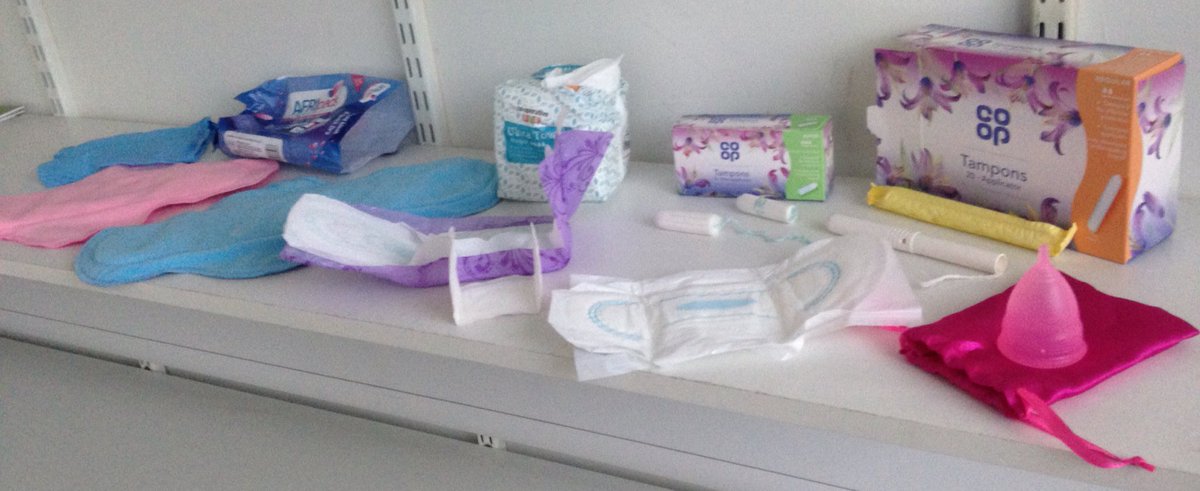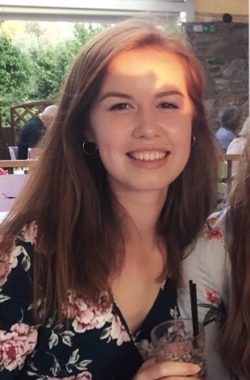My empowering experience researching menstrual taboos

Elizabeth Goolden , Graduate, Master of Arts (Global Development)
, Graduate, Master of Arts (Global Development)
*This post is about research conducted as part of a Master of Arts (Global Development) final project, supervised by Dr Lata Narayanaswamy (Lecturer in International Development, University of Leeds) and Dr Emily Wilson-Smith (Director, Irise International)*
This summer I conducted a research project investigating girls’ experiences of menstrual taboos within higher- and lower-income contexts, using the UK and Uganda as case studies.
I gathered my research by conducting semi-structured interviews with key informants. All key informants were knowledgeable of adolescent girls’ experiences of menstrual health within the UK or Uganda. Most worked or volunteered within menstrual health organisations or charities, two were medical professionals within the field of sexual health and one was a medical student with experience volunteering at a medical centre in Uganda.
I was unfortunately unable to visit Uganda to conduct the interviews face-to-face, so the majority of my interviews were via Skype. I have an undergraduate degree in Psychology and prior to this project had mainly conducted quantitative research, so I felt quite nervous about conducting qualitative interviews for the first time – especially on the topic of menstruation! I, like many others, have been influenced by the menstrual taboo, and at the beginning of the project still felt a tad awkward broaching the topic, not to mention leading a discussion on it for 40-50 minutes!
What surprised me is how much I enjoyed each and every interview I conducted; I loved gathering information and learning from the key informants. I was lucky enough that they were all seasoned ‘period-talkers,’ as people who had all worked or volunteered within menstrual health in the UK or Uganda before.
The more interviews I did, the more confidence I gained discussing the topic of periods with those outside of my research. I have always been lucky enough to be able to discuss periods with my mum and close friends, but had never had a period-related conversation with anyone else. I found it an empowering experience feeling able to discuss menstruation and issues relating to girls in the UK and Uganda with my dad, grandad, friends of friends, and anyone who was interested, really!
I was prepared, and fully expecting, to hear stories from the key informants of poor women and girls across both the UK and Uganda struggling with menstrual taboos resulting in lack of knowledge, discomfort and embarrassment as well as women being simply unable to afford products. I did hear all of these frequently, and they made up a large part of my research findings. However, I was not expecting to also hear so much positivity where women and girls had been educated about their bodies or had broken menstrual taboos in their family or community and consequently how empowered they felt. In some of my UK interviews women linked empowerment to using a menstrual cup. One key informant described how unaware she was about her reluctancy to touch her own body before using the menstrual cup, and how much of an empowering experience this was for her. I heard similar sentiments from so many women who said they felt far more connected with their bodies and appreciated their periods by actually seeing their own menstrual blood and accepting it.
I Skyped a wonderful man who worked for a menstrual health charity within Uganda who is passionate about breaking menstrual taboos and encouraging men to get involved. He told me “…it interests women to see men like me talk about menstruation, they feel so encouraged, they feel so empowered”. I left this Skype interview feeling overwhelmed with joy by how enthusiastic this man was about helping women deal with something he had never experienced himself!
The other thing I was not expecting was the amount of women and girls who, once I had opened up the conversation to talk about periods – such as mentioning what I was doing for my dissertation – were so keen to talk about periods, either to tell me some of their own experiences, or stories from friends, or to ask me questions, such as if I knew whether xyz was normal. These experiences all aided me in my research of the taboos as I realised how much people, especially women wanted to discuss and learn about their bodies but how much the taboo was holding them back from doing so.
My research found that despite living in completely different societies and cultures, girls’ feelings and experiences of menstruation in the UK and Uganda are extremely similar. This could be due to common taboos. I concluded my research with the need to think more holistically about tackling menstrual taboos across country contexts to ensure women and girls do not feel alone. I feel this even more strongly since my journey through breaking my own taboos around menstruation was aided greatly by how connected I felt to the Ugandan and UK girls I was researching. Conducting this research has made me very aware of the power of unity and sharing experiences globally. Issues surrounding menstruation are far more than practical concerns relating to inadequate toilet facilities and access to products. Stigma and shame felt by women due to taboos is very real and if one way to tackle that is to talk about periods and share common experiences then I will be first in the line to do so.
Important note/caveat: Within this blog I refer to ‘women and girls’, however I understand and fully acknowledge that not everyone who menstruates identifies as a woman and not all women menstruate (adapted from Epstein et al., 2017).
